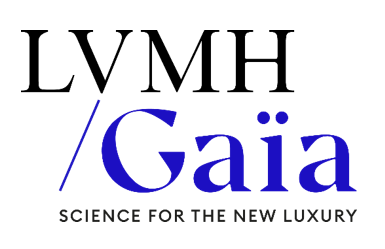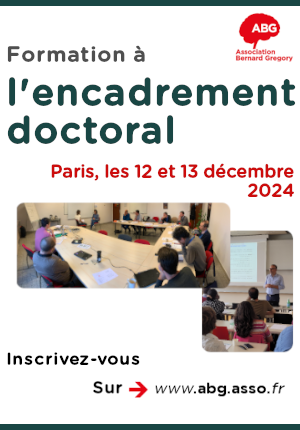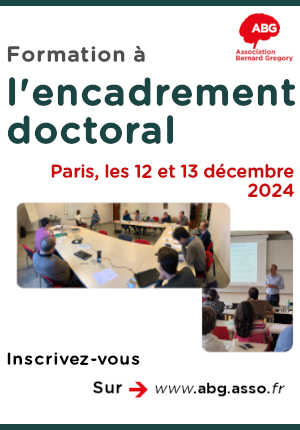Ph.D. position in Biogeochemistry, Environmental sciences, environmental Chemistry, Ecology, Microbiology.
| ABG-125925 | Sujet de Thèse | |
| 20/09/2024 | Contrat doctoral |
- Ecologie, environnement
- Biologie
Description du sujet
The Laboratory of Terrestrial Biogeochemistry of the Université de Sherbrooke (Qc, Canada) is seeking applicants for a PhD position in Biogeochemistry.
Study the importance and the drivers of alternative nitrogen fixation in cold environments.
Nitrogen availability is the main driver of primary production in high-latitude ecosystems and is central to their response to global climate change. In these nitrogen-limited environments, biological nitrogen fixation represents an essential source of exogenous nitrogen. In high-latitude ecosystems, biological nitrogen fixation is mostly associated with bryophytes and lichens. Contrary to symbiotic nitrogen fixation with higher plants that rely on the molybdenum-nitrogenase enzyme, proto-symbiosis (bryophyte and lichens) has several nitrogen fixation pathways. Over the last decade, our research team has been a leader in evaluating the importance of these alternative pathways in natural ecosystems. We demonstrated that the limitation of biological nitrogen fixation by molybdenum availability is common in high-latitude ecosystems and that the alternative nitrogen fixation, based on the vanadium-nitrogenase, is ubiquitous, accounting for about half of the biological nitrogen fixation input. The research was developed in collaboration with colleagues from the USA (Duke University and Princeton University) and Europe (Liege University, Toulouse University) and has been published in high-quality journals (e.g., Nature Geosciences, PNAS, New Phytologist, ES&T).
However, how these different biological nitrogen fixation pathways will respond to global climate change remains to be determined. Global climate change will affect climatic variables, such as temperature and humidity, that can have contrasted effects on the relative efficiency of these different pathways. Global climate change and anthropogenic activities will also affect the cycling and dispersion of essential trace metals, such as molybdenum and vanadium, which impact on the different biological nitrogen fixation pathways remains unclear.
This project will use bryophyte and lichen models, which have been successfully used in our group in the past, to explore these questions. It will involve a combination of field observations and laboratory experiments to decipher the effect of climatic drivers on trace metals homeostasis and the relative importance of biological nitrogen pathways in bryophytes and lichens.
This research has the potential for significant advancement in our understanding of biological nitrogen cycling in high-latitude ecosystems, that are particularly vulnerable to global climate change.
Project: Study the effect of global climate change on nitrogen fixation by free-living nitrogen fixers and proto-symbiotic fixers (lichens, bryophytes) in cold environments (boreal and polar).
Specific aims of the PhD project:
The specific aims of the project are:
- Characterize the role of metal (Fe, Mo, V) dynamics on N2 fixation in cold environments
- Study the effect of global climate change on N2 fixation process in cold environments.
Prise de fonction :
Nature du financement
Précisions sur le financement
Présentation établissement et labo d'accueil
Equity, Diversity and Inclusion
In our research team, the values of EDI are priorities that are reflected, among other things, in recruitment strategies which are adapted to ensure the inclusion of under-represented groups in the university environment (e.g. women, members of visible and ethnic minorities, aboriginal students, people with disabilities, first-generation students). We offer flexible work schedules to promote work-family-personal life balance, and we thrive to develop a working environment based on respect. We are promoting EDI awareness among members of our research group with frequent discussions on EDI, unconscious bias, and microaggression. We thrive to create a healthy lab culture and to train our group members to become leaders in EDI.
Presentation of the University:
Located in Canada, in the Province of Quebec, the Université de Sherbrooke is a French-speaking institution that offers you the opportunity to benefit from an academic education recognized and valued worldwide. The Université de Sherbrooke has welcomed international students ever since it was founded and the numbers increase each year. Currently, more than 1600 foreign students from 120 countries worldwide attend the Université de Sherbrooke.
In Quebec, universities are the only source of higher education. The North-American system is not comprised of grandes écoles or private higher education institutions. North-American universities are considered prestigious establishments and students receive high quality training and recognized diplomas. They can be compared to the European institutes of higher education (grandes écoles) for the quality of education.
The Université de Sherbrooke is situated in the southern part of Quebec, 150 km from Montréal, 220 km from Québec City and some 40 km from the American border.
Presentation of the Laboratory:
The research developed in the Laboratory aims to characterize metal dynamics in soil and its impact on microbial activity in soil. Our research relies on a strong expertise in biogeochemistry, analytical chemistry, and microbial ecology. The techniques used in the laboratory are diverse and adapted to multidisciplinary researches; Liquid, Gas chromatography, mass spectrometry, spectrometry UV-vis, PCR, amplicon sequencing etc. The research projects developed in our laboratory offers great opportunities to students willing to complete their inter- and multidisciplinary formation.
For more information on the lab:
Site web :
Intitulé du doctorat
Pays d'obtention du doctorat
Etablissement délivrant le doctorat
Profil du candidat
Candidate Profile.
The research requires good skills in; analytical/environmental chemistry, microbial ecology, soil science, or biogeochemistry. We are seeking candidates willing to develop their own research hypotheses within the framework of the project. Candidates must be creative, self-driven, and display high teamwork ethics and skills. The project's multidisciplinary nature means we are seeking open-minded candidates ready to share their expertise with colleagues from a wide array of disciplines, and willing to develop their own multidisciplinary knowledge, technical skills, and expertise. This project is a unique opportunity for personal and professional growth.
Vous avez déjà un compte ?
Nouvel utilisateur ?
Vous souhaitez recevoir nos infolettres ?
Découvrez nos adhérents
 ONERA - The French Aerospace Lab
ONERA - The French Aerospace Lab  Tecknowmetrix
Tecknowmetrix  MabDesign
MabDesign  Aérocentre, Pôle d'excellence régional
Aérocentre, Pôle d'excellence régional  Laboratoire National de Métrologie et d'Essais - LNE
Laboratoire National de Métrologie et d'Essais - LNE  Institut Sup'biotech de Paris
Institut Sup'biotech de Paris  Ifremer
Ifremer  Institut de Radioprotection et de Sureté Nucléaire - IRSN - Siège
Institut de Radioprotection et de Sureté Nucléaire - IRSN - Siège  PhDOOC
PhDOOC  Généthon
Généthon  CESI
CESI  SUEZ
SUEZ  Nokia Bell Labs France
Nokia Bell Labs France  MabDesign
MabDesign  ADEME
ADEME  TotalEnergies
TotalEnergies  Groupe AFNOR - Association française de normalisation
Groupe AFNOR - Association française de normalisation  ANRT
ANRT  CASDEN
CASDEN
-
EmploiCDIRef. ABG126093TerakalisMontpellier - Occitanie - France
Chef de projet Applications CND Terahertz
Physique - Matériaux - Sciences de l’ingénieurJunior -
Sujet de ThèseRef. ABG125925Université de sherbrooke, Laboratory of Terrestrial BiogeochemistrySherbrooke - Canada
Ph.D. position in Biogeochemistry, Environmental sciences, environmental Chemistry, Ecology, Microbiology.
Ecologie, environnement - Biologie -
EmploiCDIRef. ABG125911LVMH GaïaParis 8ème - Ile-de-France - France

Ingénieur Recherche Nouvelles matières maroquinières (F/H)
MatériauxJunior




